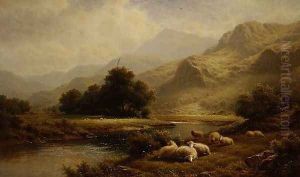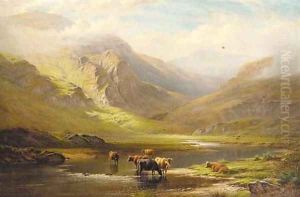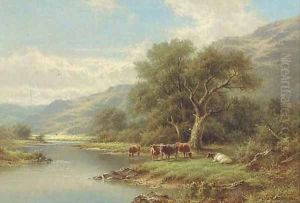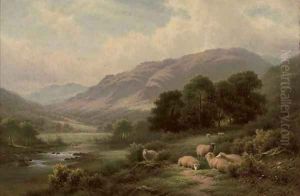Walter J. Watson Paintings
Walter J. Watson was a British painter known for his landscapes and rural scenes. Born in 1879 in the United Kingdom, Watson's work reflects a deep appreciation for the British countryside, often portraying it in a romantic and idyllic manner. Throughout his career, he developed a distinctive style that combined elements of impressionism with a more traditional British landscape approach.
Watson's artistic journey was shaped by his education and the prevailing artistic movements of his time. He was active during a period when art was undergoing significant changes, with the rise of modernism and the gradual shift away from academic styles. Despite these changes, Watson remained committed to his own vision, often focusing on the timeless qualities of the natural world rather than embracing the avant-garde trends of his contemporaries.
Throughout his long life—he lived to be 100 years old—Watson exhibited his work widely. His paintings often found a receptive audience among those who were drawn to their serene beauty and technical skill. While he may not have achieved the same level of fame as some of his peers, his work was respected and appreciated by collectors and the public alike.
Walter J. Watson passed away in 1979, leaving behind a legacy of art that continues to be admired for its tranquil depictions of the English landscape. Although he may not be a household name, his contributions to the art world have ensured that his work remains a part of the conversation about British art and its evolution over the course of the 20th century.



